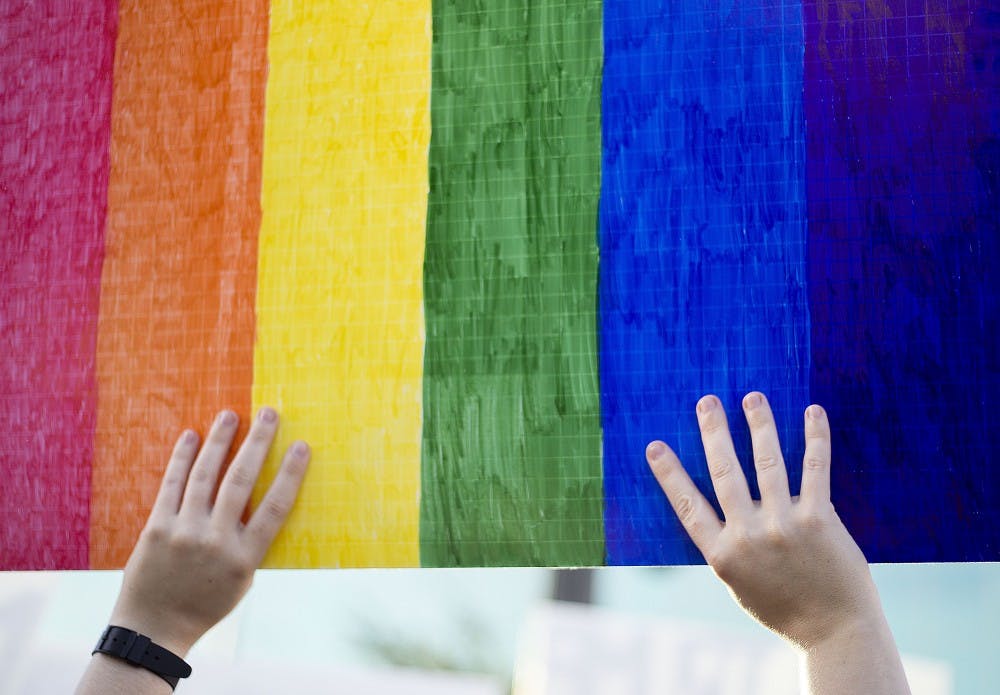Acceptance toward the LGBTQ+ community is generally widespread across ASU’s campuses, especially with its recent influence in certain academic communities.
For some students, openly declaring their sexual orientation could serve as a way to improve workplace environments and as examples for those who have trouble being themselves around their colleagues.
oSTEM — Out in Science, Technology, Engineering and Mathematics — is an academic society on ASU’s campus that brings together students who simultaneously major in STEM studies and identify as LGBTQ+.
President of oSTEM Isaiah Williams said he discovered his true identity after joining oSTEM his sophomore year of college. He also said he identifies as bicurious and the orientation is not common in his field of study, biochemistry.
“STEM overall is dominated by heterosexual cisgender males,” Williams said.
Williams said he believes his example — in the long run — can help those going through a similar process of finding themselves to be open with their journey.
“There is sort of a moral calling to make sure that everybody who comes from a minority background is capable of being identified in specific instances,” Williams said. “Having a woman in power in a specific company will encourage other women to try and reach that level of power in that company because they see her as a role model.”
Williams said that by allowing himself to open up in oSTEM, he was able to better discover himself and his strengths. He also noted that he learned to feel comfortable amongst heterosexual peers through finding common ground.
“I have definitely figured out who I am and who I need to show to the public and how me showing myself to the public will help other people who have been in my position,” Williams said.
Similarly, engineering junior Tyler Maynard said he is open about his sexual orientation and that student involvement in clubs can help incite beneficial discussion.
“At ASU, there is a good support system for everyone and it’s really easy to find people’s common interests and views. It’s kind of like finding a space where you can be yourself and not have to worry,” Maynard said.
Michael Kintscher, computer science senior, is a member of oSTEM and said he wanted to find a club that welcomed and focused on LGBTQ+ as well as his academic endeavors.
“I transferred into ASU from California and I was looking for any LGBTQ+ groups that were on campus,” Kintscher said. “Being a STEM major myself, I wanted to find something that aligned with my interests.”
Kintscher said oSTEM made a positive difference in his life and that the club can help a variety of people involved in STEM majors feel comfortable in their field of study.
“I know that there are a lot of stereotypes of what’s there and what’s not there about LGBTQ+ community and usually we’re not associated with the STEM fields,” Kintscher said. “I think it’s really positive to see people that are involved and boast (STEM majors) as well as the LGBTQ+ community.”
Kintscher said being a part of oSTEM helped him grow and helped him learn that advocating what one believes is right will allow for progression and integration into society in a smoother way.
“It’s about advocacy,” Kintscher said. “While everything is going on and society is constantly progressing forward, things aren't always certain and we can’t get complacent and just expect things to get better or to happen. We really have to be a part of making it better ourselves and really stand up and advocate for ourselves and each other.”




